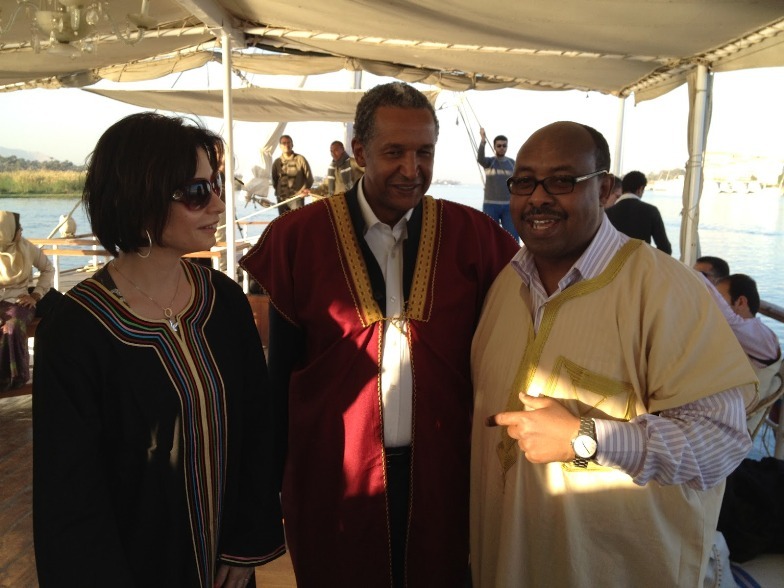Nairobi (HAN) March 26, 2014 – Ethiopian Ambassador doubts need for mediator between Egypt and Ethiopia. Ethiopia’s ambassador to Egypt said he doubted the need for mediation between Egypt and Ethiopia on the Grand Ethiopian Renaissance Dam, stressing the importance of constructive dialogue as the only alternative.
Ambassador Mahamoud Dirir said in a statement published by the Ethiopian Foreign Ministry on Monday that it is “naïve” to consider that ties between the two countries should “solely be viewed through the prism of the Nile issue.”
Dirir denied reports of third party mediation between the two Nile Basin countries and said, “there are only two, and only two, countries in the entire world which are well-placed to mediate between Egypt and Ethiopia; and these are, of course; Ethiopia and Egypt, themselves.”
He added that the role of Sudan as a partner has been pivotal to “ironing out” difficulties in the dialogue between Egypt and Ethiopia.
Dirir said the countries have enough experience to ensure that the Nile is a source of cooperation between Nile Basin countries, not a source of conflict. The Egyption Prime Minister Ibrhaim Mehleb held talks with Egyptian Foreign Minister Nabil Fahmy in which they focused on relations with Nile Basin countries and the possibility for developing them. The cabinet said in a statement after the meeting that Egypt is currently dealing positively with all Nile Basin countries in order to preserve its strategic interests and out of recognition of the ambitions of these countries for development.
Ethiopia began diverting water from one of the Nile River’s tributaries in May 2013, and is currently building the Grand Ethiopian Renaissance Dam, expected to be completed within three years. Egypt fears that the electricity-generating dam will have a detrimental effect on its lion’s share of Nile water.
The latest round of talks between Egypt and Ethiopia ended on 10 February without the two sides resolving “sticking points”. The “sticking points” that remain regard the formation of a committee to oversee the implementation of recommendations of a report detailing confidence-building measures concerning the dam and its effect on downstream nations.
Ethiopia said the talks in February “made no progress” because of a difference in opinion regarding the involvement of international experts. It said that while Egypt wants the involvement of foreign experts, Sudan and Ethiopia, do not see the need.
Sudan, which is also an interested party and, like Egypt, is a downstream country, was part of a series of tripartite talks between the three countries in November, December and January. However, they have not reached an agreement.
–
Sources: HAN & Geeska Afrika Online (1985-2014), The oldest free independent Free Press in the region, brings together top journalists from across the Horn of Africa. Including Ethiopia, Somalia, Eritrea, Sudan, Djibouti, South Sudan, Uganda, Kenya, Oromo, Amhara, Somali, Afar and Harari. Plus, we have daily translations from 150 major news organizations in the Middle East and East African regions. Contact at news@geeskaafrika.com


Leave a Reply